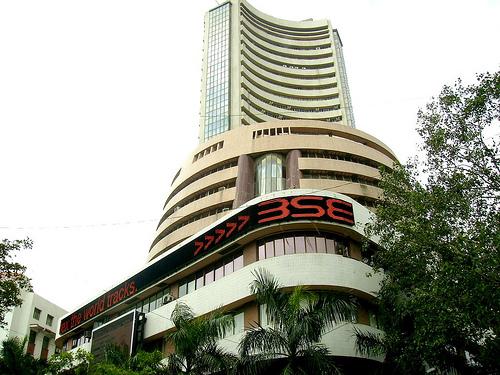Equity Indices Rise For 5th Straight Week Amid Trade War Concerns

Mumbai: The Indian equity market rose for the fifth consecutive week and scaled new highs during the August 20-24 period amid concerns of global trade war escalation.
Healthy buying in pharma and metal stocks, among others, supported the gains on the indices, analysts said.
On Thursday, both key indices -- S&P BSE Sensex and the NSE Nifty50 -- touched their respective intra-day all-time high levels of 38,487.63 points and 11,620.70 points, before settling at their record closing levels of 38,336.76 points and 11,582.75 points, respectively.
Both major indices are currently hovering around record levels and any minor gain in trade makes the indices touch fresh benchmarks.
A positive outlook for the Indian economy by the global credit ratings and research firm Moody's Investors Service also supported sentiments.
However, in the later part of the week, concerns of rise in the US-China trade conflict made the traders cautious and limited the gains, analysts said.
On a weekly basis, the S&P BSE Sensex closed at 38,251.80 points, higher 303.92 points or 0.80 per cent from its previous close.
Similarly, the wider Nifty50 on the National Stock Exchange made gains. On Friday, it ended at 11,557.10 points, higher 86.35 points or 0.75 per cent from the previous week's close.
"Benchmark indices once again hit fresh life-time highs and settled the week with a decent gain despite escalating trade war tensions and firmness in crude oil prices," said Rahul Sharma, Senior Research Analyst, Equity99.
Sharma said sentiments were boosted after Moody's report said that the Indian economy is expected to grow by around 7.5 per cent in 2018 and 2019, supported by strong urban and rural demand and improved industrial activity.
Hem Securities' Director Prateek Jain said: "Towards the fag end of the week, market reflected correction due to Indian currency's depreciation."
"Meanwhile, US-China discussions did not reach any conclusion. China and the US both imposed tariffs of $16 billion on each other's products," Jain added. This resurgence in trade tensions further limited the gains in the Indian indices.
The rupee depreciated significantly on Thursday and closed at over the psychological mark of 70 per dollar -- at 70.12 per dollar -- which dampened the domestic sentiments.
According to Kotak Mutual Fund's Head of Equity Research, Shibani Kurian, rise in trade deficit along with trends of a strong US dollar and the over-valuation of the Indian rupee in real effective exchange rate basis exerted pressure on the domestic currency.
However, it recovered on Friday and on a weekly basis the Indian currency settled 69.91 per dollar, appreciating by 25 paise from its previous week's close of 70.16 per greenback.
In terms of investments, provisional figures from the stock exchanges showed that foreign institutional investors bought scrips worth Rs 128.64 crore and the domestic institutional investors purchased stocks worth Rs 1,837.84 crore in the past week.
Figures from the National Securities Depository Ltd (NSDL) showed that foreign portfolio investors (FPIs) divested Rs 468.41 crore, or $66.24 million, from the equities segment during August 20-24.
Sector-wise, the top gainers were energy, pharma, infra and metal indices and the top losers were Bank Nifty, realty and public sector banks, said Deepak Jasani, Head of Retail Research, HDFC Securities.
The top weekly Sensex gainers were Larsen and Toubro (up 8.91 per cent at Rs 1,342.80), Vedanta (up 7.38 per cent at Rs 223.95), ONGC (up 6.58 per cent at Rs 174.90), Reliance Industries (up 6.49 per cent at Rs 1,278.05) and Wipro (up 4.45 per cent at Rs 292.30 per share).
The major losers were Infosys (down 3.18 per cent at Rs 1,379.95), Indusind Bank (down 2.82 per cent at Rs 1,927.25), Hero MotoCorp (down 2.24 per cent at Rs 3,212.60), ICICI Bank (down 1.30 per cent at Rs 330.10) and Yes Bank (down 1.07 per cent at Rs 374.65 per share).
(IANS)





